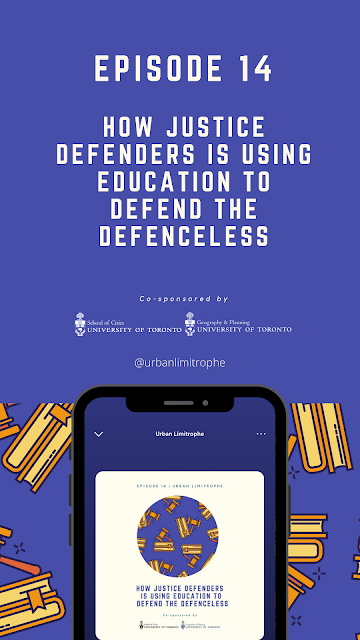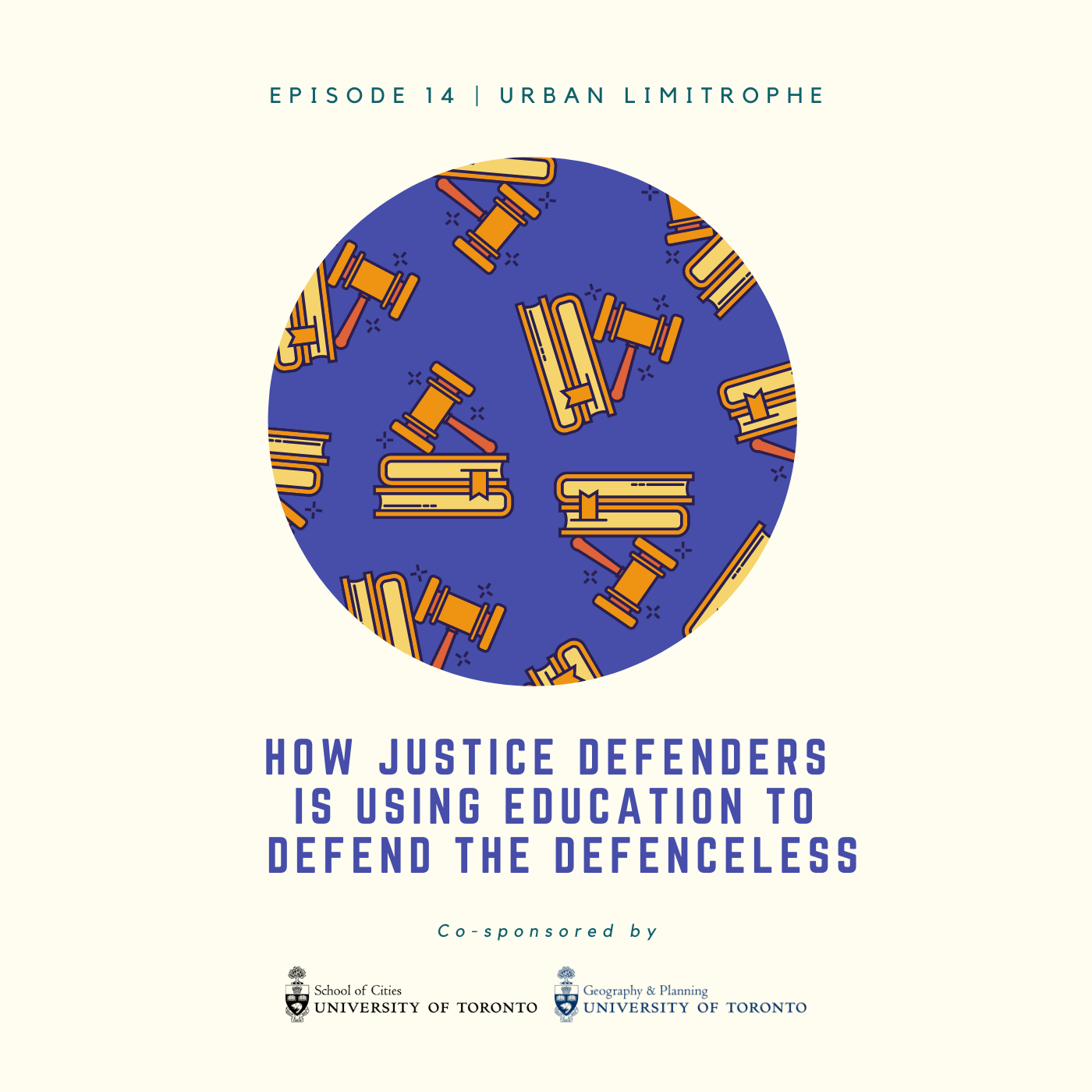In this episode, my co-host Hannah Ahamedi and I chatted with Milly Kakungulu, the Education Department Lead at Justice Defenders Uganda. Through our discussion, we learned more about how the Justice Defenders (formerly known as the African Prisons Project) are defending the defenceless by educating prisoners on how to provide legal services for themselves and others. Thanks to Justice Defenders' various training opportunities and a people-centred approach to justice, prisoners and prison staff can become paralegals and lawyers whose newfound skills help improve access to fair trials and legal services, and ultimately close the ever-growing global justice gap. What started off as a discussion about the non-profit's work, ended up in a deeper discussion about justice, equity, humanity, and community and how important it is to keep those four principles if we hope to transform our legal systems for the better.
In this episode, you'll learn about:
- the importance of a people-centred approach to justice,
- the different challenges that prisoners face with getting access to justice in the current legal system,
- the Justice Defenders model (education, training, practice) and the various opportunities that Justice Defenders provides participants,
- how prisoners have leveraged the education Justice Defenders' has provided them to transform their own lives and influence policies that improve justice within their communities at various government levels,
- the Reach Alliance and how our research project inspired Hannah and I to create this episode
- and much more!
Powered by RedCircle
Guest: Milly Kakungulu, Education Department Lead
Co-Host: Hannah Ahamedi
My name is Hannah Ahamedi and I am a researcher at the Reach Alliance focusing specifically on information dissemination in South Sudan. My research interests include the Swahili Coast, oral histories, feminist grassroots peacebuilding, global innovation, and conflict resolution. I am looking forward to graduating from Victoria College at the University of Toronto this spring with a B.A (hons) in Peace, Conflict, and Justice Studies, Diaspora/Transnational Studies, and History. In my spare time you can usually find me reading sci-fi/fantasy novels, going to the gym, and taking part in numerous volunteer activities that I find incredibly fulfilling.
To learn more about her click here.
Timestamps
- 01:26 | An introduction to my co-host Hannah, the Reach Alliance, and why we chose this topic
- 14:25 | An introduction to our guest Milly and her work
- 16:41 | An overview of Justice Defenders' services and impact
- 25:00 | Can you walk us through the Justice Defenders model (education, training, practice) and some of the opportunities that Justice Defenders provide to participants?
- 32:40 | What have been some of the challenges that Justice Defenders face in doing your work?
- 36:21 | What are the challenges that prisoners face in prisons and how has Justice Defenders' overcome them and provided an amenable learning environment?
- 41:20 | Understanding that you have probably encountered some very inspirational people in your work with Justice Defenders, would you feel comfortable sharing a story of a moment where you felt the most impactful?
- 46:47 | Do you think that Justice Defenders has an equal impact on women in prisons?
- 48:35 | How does working in women's prisons differ from men's prisons?
- 51:00 | What is people-centred justice?
- 56:20 | Seeing that East Africa is still considerably impacted by the British colonial system, does Justice Defenders have future plans to emphasize traditional or pre-colonial indigenous justice systems?
- 1:02:01 | How can people get involved with the organization?
- 1:01:15 | We know that already expanded to the USA and set up a branch there. Do Justice Defenders see itself expanding across the continent?
- 1:01:15 | How can people get involved with the organization?
- 1:05:20 | Key takeaways from our conversation
Show Notes
- Reach Alliance
- Justice Defenders
- Jumpstart - Refugee Talent
- United Nations Sustainable Development Goals (SDGs)
- Susan Kigula's Story
Want to learn more? Check out this episode's references!
Acknowledgements
- Editor and Research Assistant: Hannah Ahamedi
- Music Producer: Imany Lambropoulos
- Podcast Host and Graphic Designer: Alexandra Lambropoulos
Stay in the loop!
If you would like to be interviewed, have an interesting idea to share for an episode, or have any feedback on the podcast, please send me an email at hello[at]urbanlimitrophe.com.
If you enjoy the show, please share it with your family, friends, magician, makeup artist, meteorologist... and leave a review on Apple Podcasts!
Make sure to subscribe to the newsletter and follow the podcast on Instagram to stay in the loop
 |
| Like it? Share it! Pin it! |



